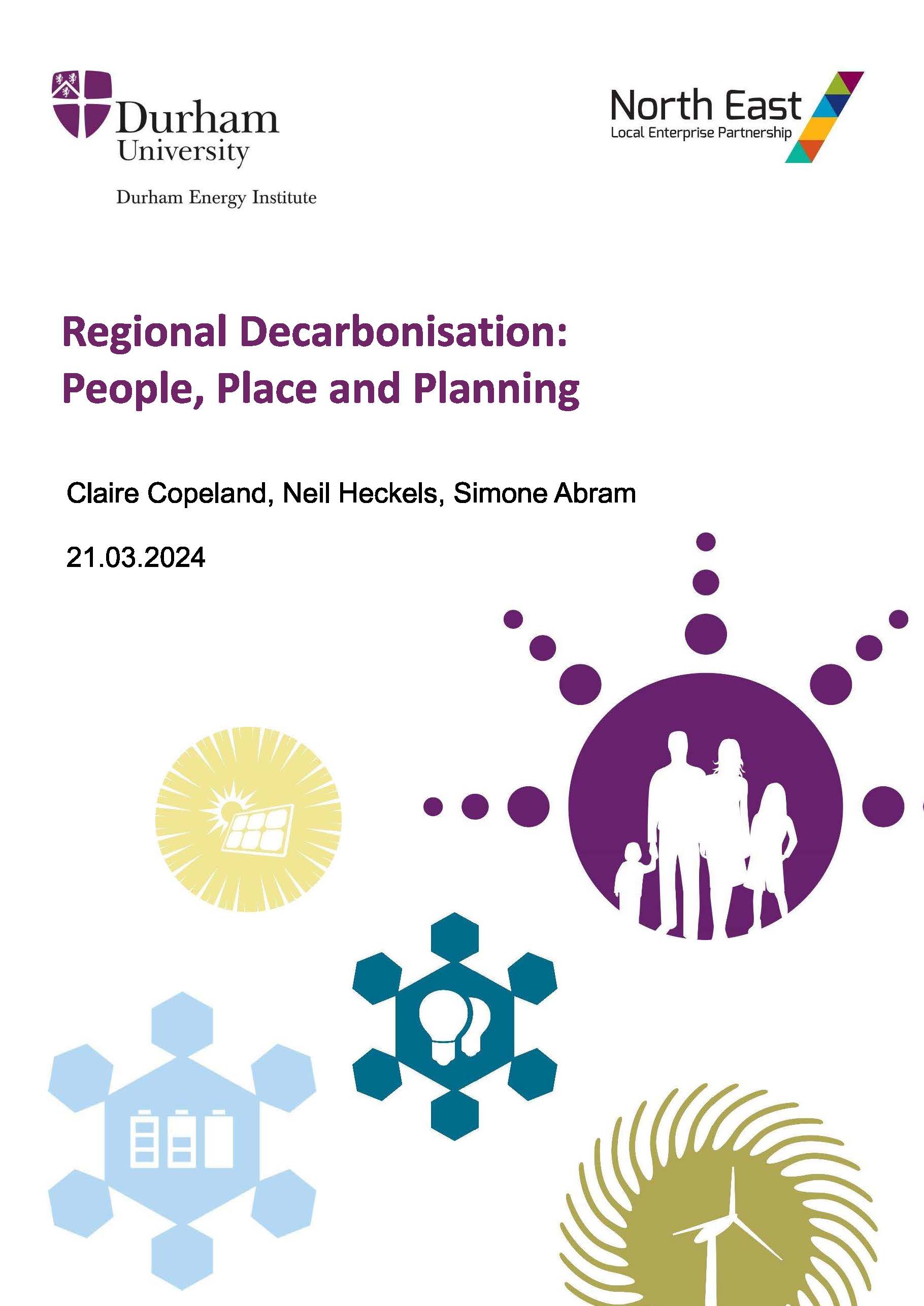New Policy Brief - Regional Decarbonisation: People, Place and Planning

This new policy briefing explores the possibilities for regional decarbonisation energy planning in the North East of England. Local Energy Planning is considered important due to the opportunity for local low carbon energy technologies to deliver benefits in local communities.
This briefing - Regional Decarbonisation: People, Place and Planning - is the result of a partnership between Durham Energy Institute at Durham University, the North East Local Enterprise Partnership and the North of Tyne Combined Authority (NTCA). The findings in this report are based on a review of the literature, interviews and a focus group with North East energy system stakeholders.
Local and regional energy planning is expected to deliver a range of benefits, which include:
- providing the stimulus for creativity and innovation,
- identifying where efficiency improvements can be made,
- potential for projects to be linked together,
- provide businesses with greater certainty and clarity for investment decisions,
- scope for further collaboration activities and coordination of decarbonisation efforts, and
- realising net zero emissions more swiftly than otherwise.
The briefing identifies that a stronger focus on collaboration between key stakeholders such as energy network operators, businesses and organisations in the region, as well as the citizens is essential for success. This should be supported by a vision and strategic framework, developed by the combined authority, which that has the public buy in. Such a structure can minimise resistance to the planning and implementing changes and increase the speed of progress towards decarbonisation. Energy demand reduction measures that go beyond efficiency measures should be central to this vision and strategic framework. An example would be more active travel which will enhance wellbeing of citizens as well as making net zero emissions targets easier to achieve.
Read the policy brief - Regional Decarbonisation: People, Place and Planning
Find out more
- See the fantastic research we do at the Durham Energy Institute including wind power, solar energy, smart technologies for energy management, energy storage, carbon dioxide geostorage, the continuing development of novel energy materials, and behavioural change in society associated with renewable energy use. The DEI is also driving the UK hydrogen revolution as a replacement for fossil fuels.


/prod01/prodbucket01/media/durham-university/research-/research-institutes/durham-energy-institute/landscapes-cityscapes-montages-etc/Walney-sunset-2000X800.jpg)